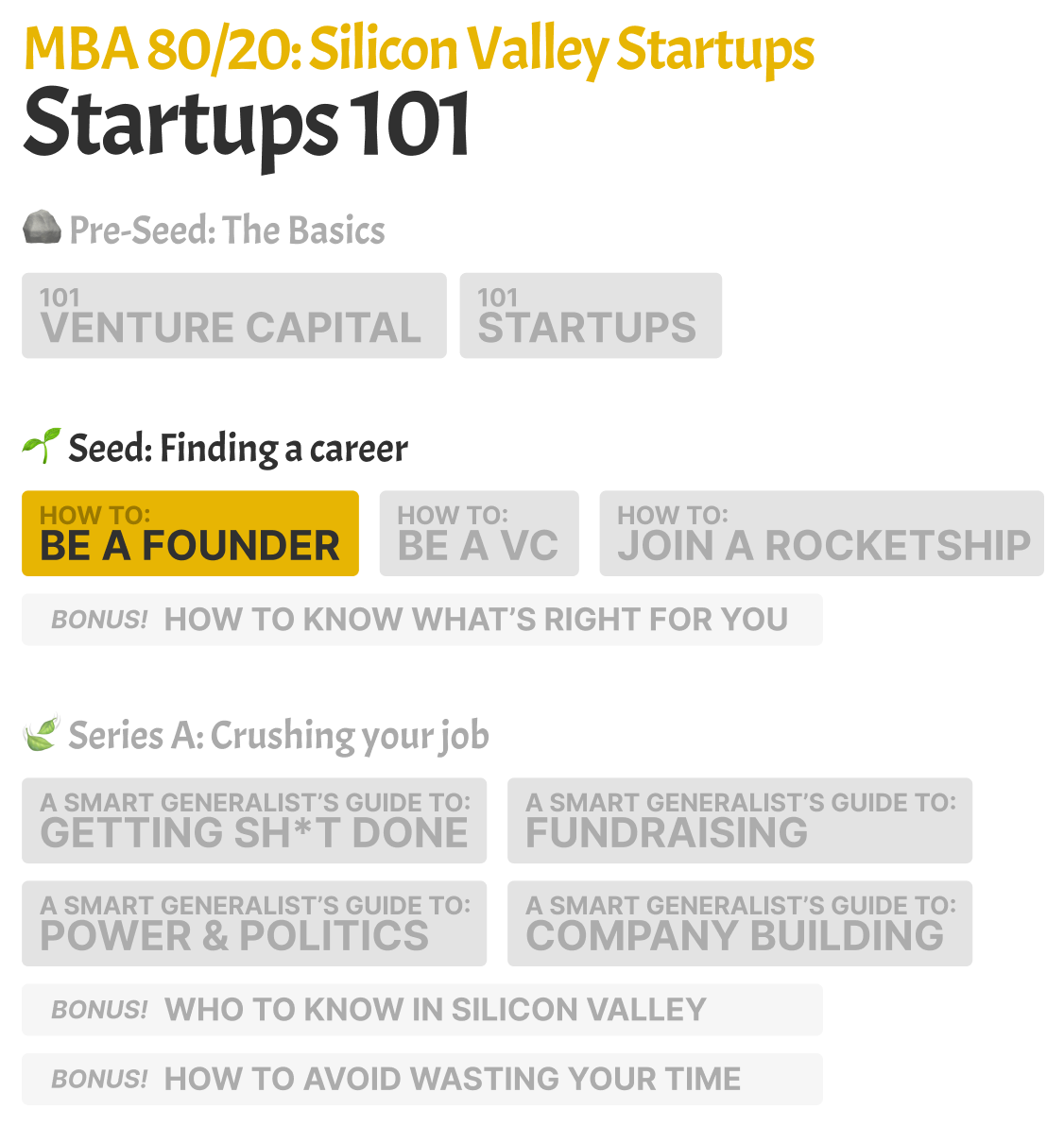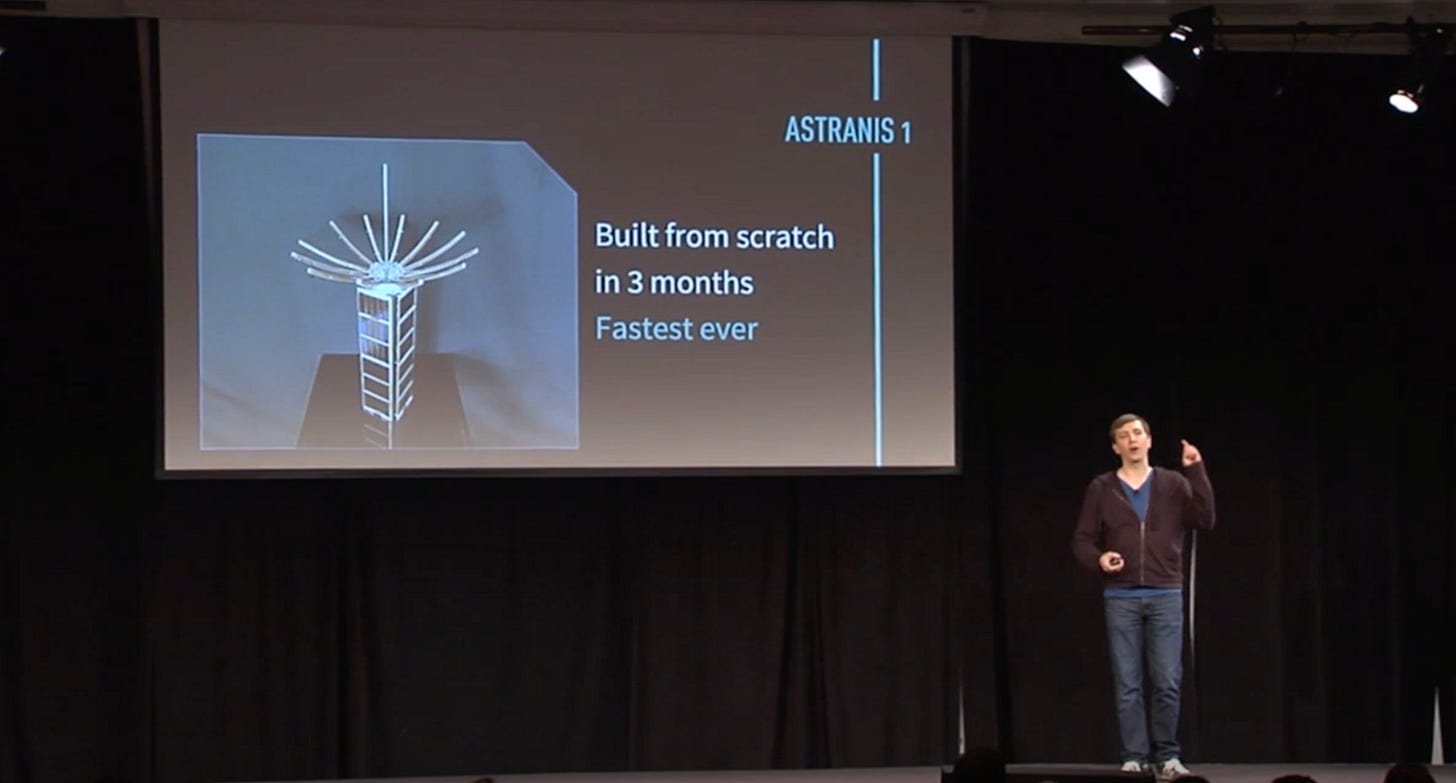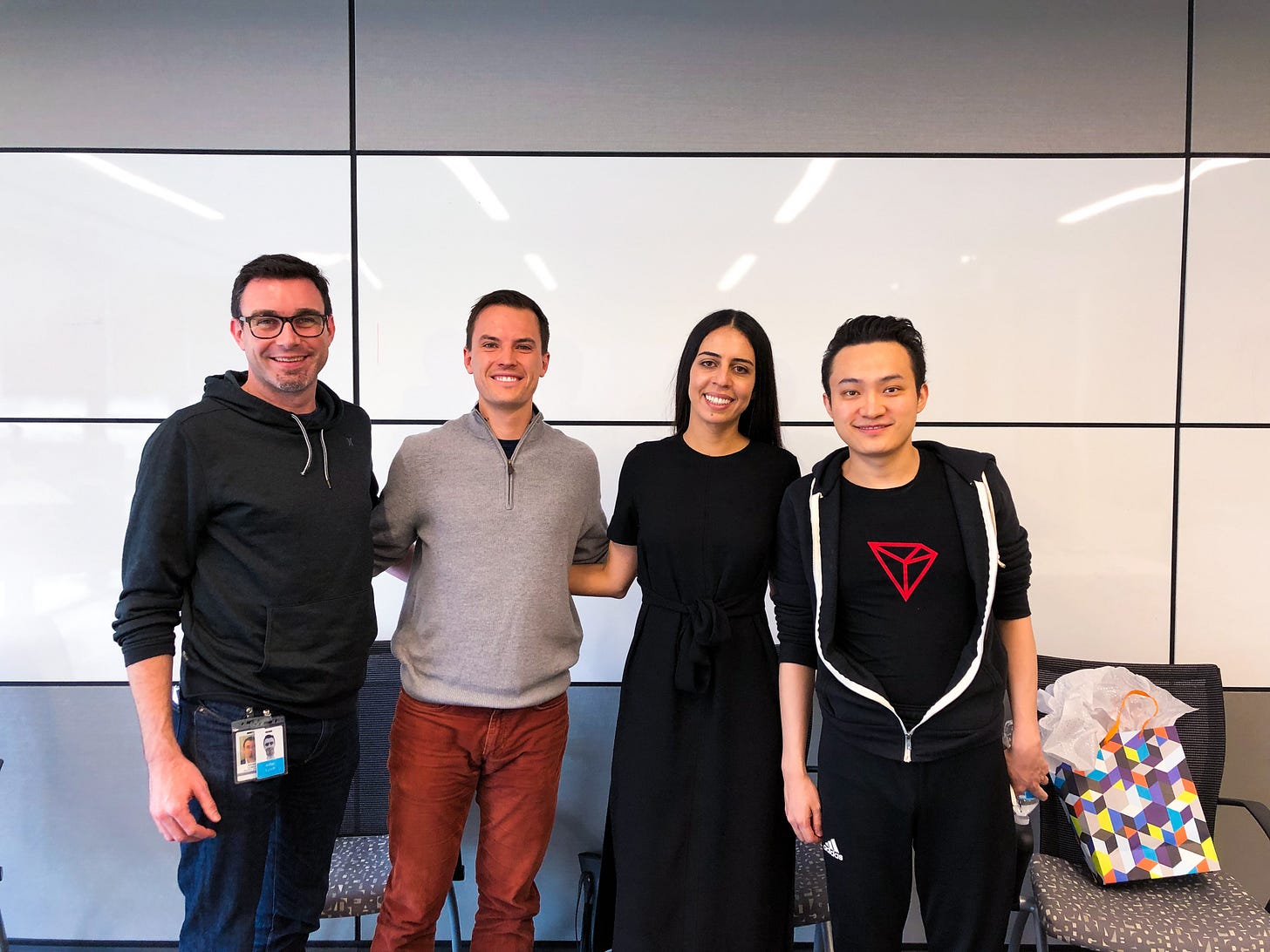How to found a Silicon Valley startup
And avoid the mistakes I made as a founder
Startups aren’t normal companies, and their founders aren’t normal leaders.
The goal of a Silicon Valley startup is to scale at all costs.
Startups immediately spend all of their cash, whether from fundraising or sales, in the pursuit of ever-greater scale. As a result, most startups have 18 months or fewer to live — in the immortal words of Reid Hoffman, starting a startup is like jumping off a cliff and trying to build an airplane before you hit the ground.
This constant reckoning with the overwhelming probability of failure is a lot to deal with, and it’s particularly hard on the founders who must convince person after person to jump off the cliff with them.
Ben Horowitz said that as a startup founder, he slept like a baby: he woke up every few hours, crying.
It’s funny, but any founder past or present can attest that it’s not really a joke. You have an insane amount of responsibility, real livelihoods depend on your ability to execute, and every one of the hardest problems at the company finds its way to your desk.
I’ve tried it twice, and it’s not for the faint of heart.
If you think you want to be a founder, make sure you know what you’re getting into.
There are much easier ways to make $1 million (just work at Google), or be your own boss (just start a consulting practice), or make an impact on the world (just start a non-profit). There are millions of reasons that you’ll fail to achieve your startup dreams.
But, if you’re the unique brand of crazy that looks at terrible odds as a challenge rather than a statement of fact, keep reading.
Here’s how to be a founder of a Silicon Valley startup.
🚫 Don’t search for a perfect startup idea.
I know you won’t believe me, but it’s true: all of your startup ideas have been tried before.

I used to be very serious about my startup ideas, but as soon as I got to Silicon Valley, I realized that that was silly. No Silicon Valley investor would sign an NDA before meeting with me, and I quickly found out why: my ideas were already in the wild all around me. This was invariably bad news: either the startup was crushing it and I had no chance of catching up; or it was failing, in which case it was probably a bad idea.
The truth is that startup ideas don’t really matter. (At least as much as you think they do.)
No battle plan survives first contact with the enemy, and no business plan survives first contact with a customer. Nobody is smart enough to see every twist and turn ahead of time, so there’s no reason to delay: just get started, even if your idea isn’t yet perfect.
The takeaway: Don’t waste your time; just get started.
🚫 Don’t wait for fundraising to get started.
When I showed up in Silicon Valley with my precious startup ideas, I figured that Step One was to get venture funding. And I was wrong.
No investor was going to fund an idea – why would they? An idea requires a team to will it into existence, and I didn’t have a team, much less any tangible progress towards making any of these ideas happen.
Even at the very earliest stages – like at Y Combinator, for instance – companies are coached to produce actual results that they can show to investors to convince them of their ability to execute. Relativity Space signed customer deals and designed a prototype 3D rocket printer during the three months of Y Combinator; Astranis built a satellite and locked down a rocket launch.
Securing venture capital funding is a delicate dance. If you need their money to get started, they won’t give it to you. But if you can show that you don’t need their money, they’ll invest.
The takeaway: build now, raise later.
🚫 Don’t beat your competition.
A classic first-time founder mistake is to find a big, existing market and to attempt to skim off a small percentage of it. The faulty logic goes:
[X] is a market that does billions in sales each year
If I make a startup, I might be able to capture 1% of it
If I do, I’ll make millions!
But Silicon Valley startups work best when they shoot not for 1% market share, but for a monopoly:
This was a hard truth for a business person with an economics major to process, but trying to achieve modest results at a startup (just one percent market share!!) is a recipe for failure.
The takeaway: If you’re competing, you’re already losing.
✅ Network your brains out.
Arguably your most important job as a founder is to convince other people to bet on your startup. You have to convince investors to bet their money, of course, but you also have to convince people to bet their time, careers, and political capital on you.
Making that sales pitch is an art and a science, and we’ll talk about it in depth in a future article. But for now, there’s one move you can make today to make your future selling infinitely easier: start genuinely helping people today who might be able to help you in the future
Success as a founder requires talent, but you also need other people to believe that they personally will be better off in a world where you succeed. This “networking” doesn’t need to be bullshit hobnobbing, or “let me pick your brain” conversations. (It’s better if it’s not.)
The best way to network is just to help people without expecting anything in return. Just think – what do I have that this person wants, and what can I do to make this person’s life easier? If you’re a net taker, you’re asking the other person for a favor when you ask them to spend (time, capital) on you. But if you’re a net giver, why wouldn’t the other person accept your offer? It takes effort and creativity to find out what those helpful things might be, but if you try, you can figure it out.
As a simple example: I want to speak to college campuses. If you can introduce me to a professor, a person to whom you have easy access but who I don’t know, that’s immediate and easy value add!
The takeaway: Start building relationships with potential co-founders, employees, customers, and investors today.
✅ Build, and sell.
When students ask me for entrepreneurship advice in person, I give them a simple challenge: get a stranger to pay you a single dollar today.
Objectively, it’s a low bar to clear. But subjectively, it’s scary. People don’t know what to sell and feel like a day isn’t enough time. And to that I say: welcome to entrepreneurship! You never feel like you have enough time, and often have no idea what you’re doing. To date, I’ve only had one person successfully complete the challenge – and he’s now starting his own company.
The broader point behind this challenge is that the way to get good at founding companies is to sell stuff that you’ve built. Open an online store. Take a coding course, and make a shitty web app. Start a Substack, and sell subscriptions. 👀
I’m not aware of any substitutes for just doing it; no amount of reading, and no number of coffee chats can replace first-hand experience launching products and convincing people that they need them.
The takeaway: Make a dollar from a stranger today.
✅ Retain your ambition.
Startups are insanely ambitious endeavors, and that’s why I love them. It takes a special kind of crazy to look out at the world – a world that has been built over generations, a world full of authorities and common wisdom – and to think you make it better.
Staring at a blank page is scary. (Which is one reason to put something on it to start, per the last tip.) Every act of creation starts with nothingness. The explicit purpose of writing, founding, creating, etc. is to bring something new into the world.
Some people can overcome that fear, and others can’t. But even among those brave enough to start an act of creation, many will still fail along the way.
They’ll fail because the world wants desperately not to be changed. Culture is built on consensus, consensus resists change, and resistance dulls the ambition of people who want to create things.
It is the goal of the creator – the writer, the founder – to overcome that resistance, and to retain their ambition even as the world tries, desperately, to round them back into the consensus.
One of my favorite books about founding a startup isn’t about startups or technology at all, it’s about writing: The War of Art, by Steven Pressfield.
Pressfield said:
“Are you paralyzed with fear? That’s a good sign. Fear is good. Like self-doubt, fear is an indicator. Fear tells us what we have to do. Remember one rule of thumb: the more scared we are of a work or calling, the more sure we can be that we have to do it.”
Throughout your time as a founder, you will never stop seeing problems that need solving. The goal of founding a Silicon Valley startup is to upgrade your problems over time: to make them more consequential, higher-stakes, and more impactful on the world if successfully navigated.
Best of luck on your journey as a founder! If you want to start a Silicon Valley startup for real, reach out to me (just reply to this email) and I’ll see how I can help.






